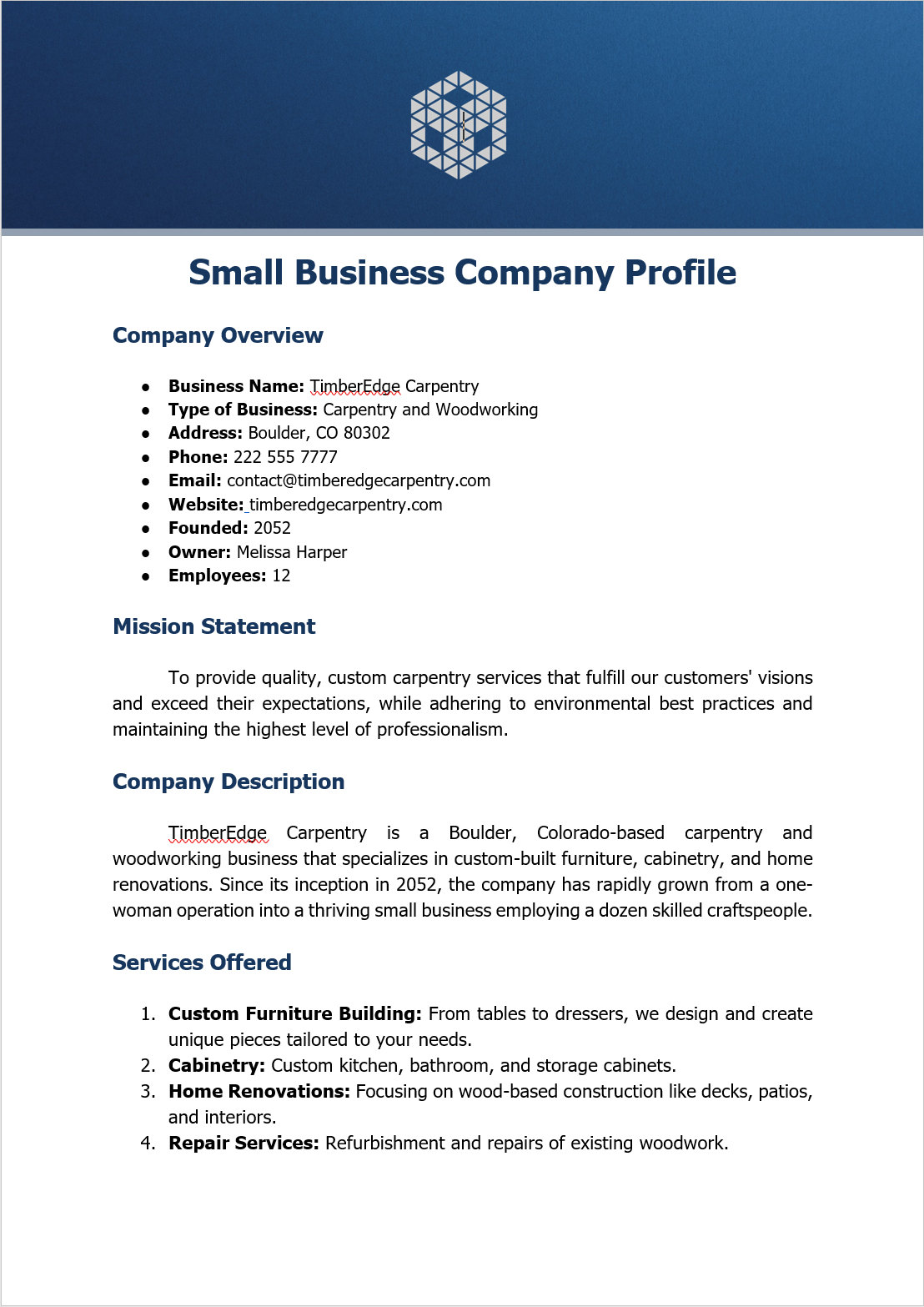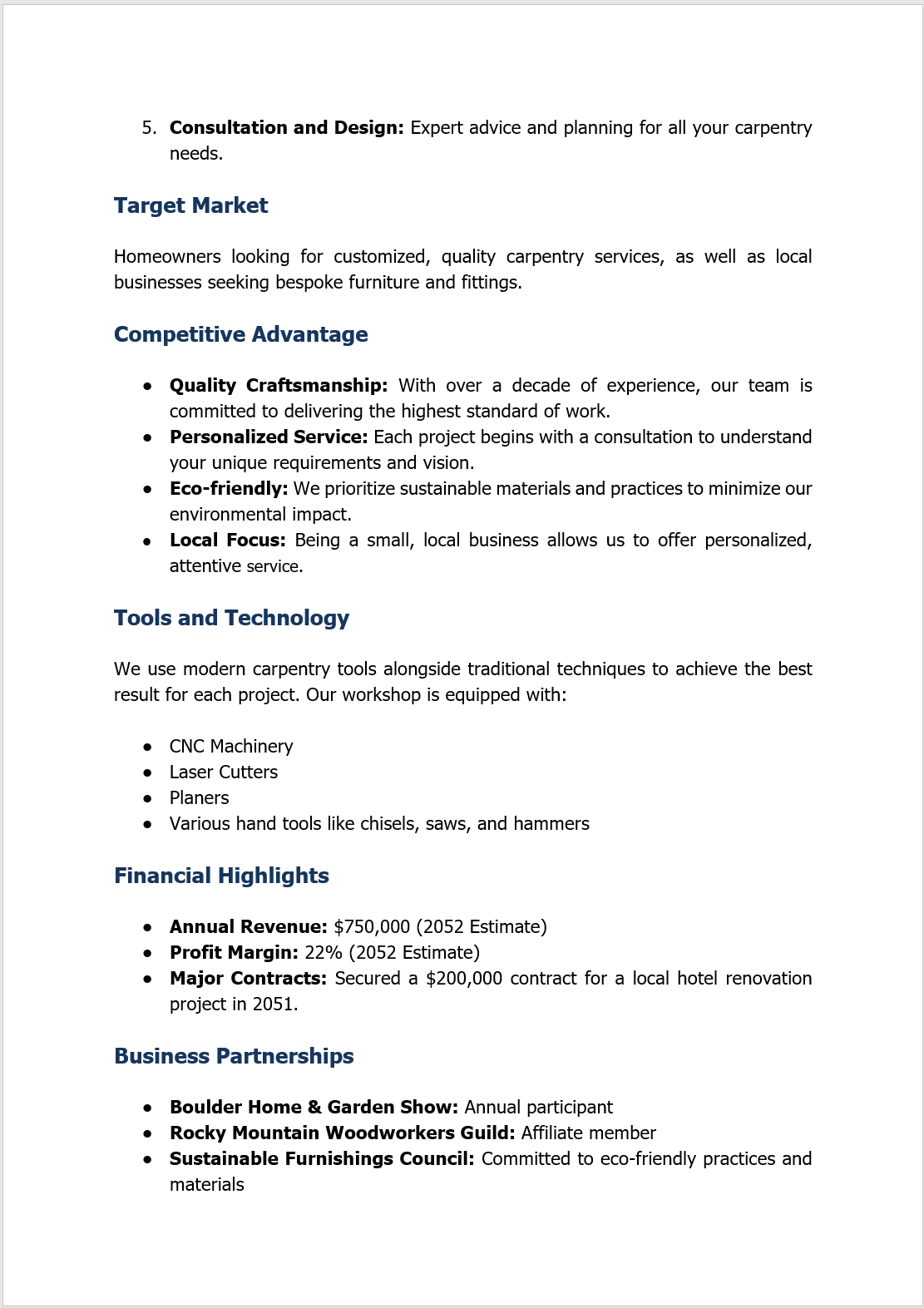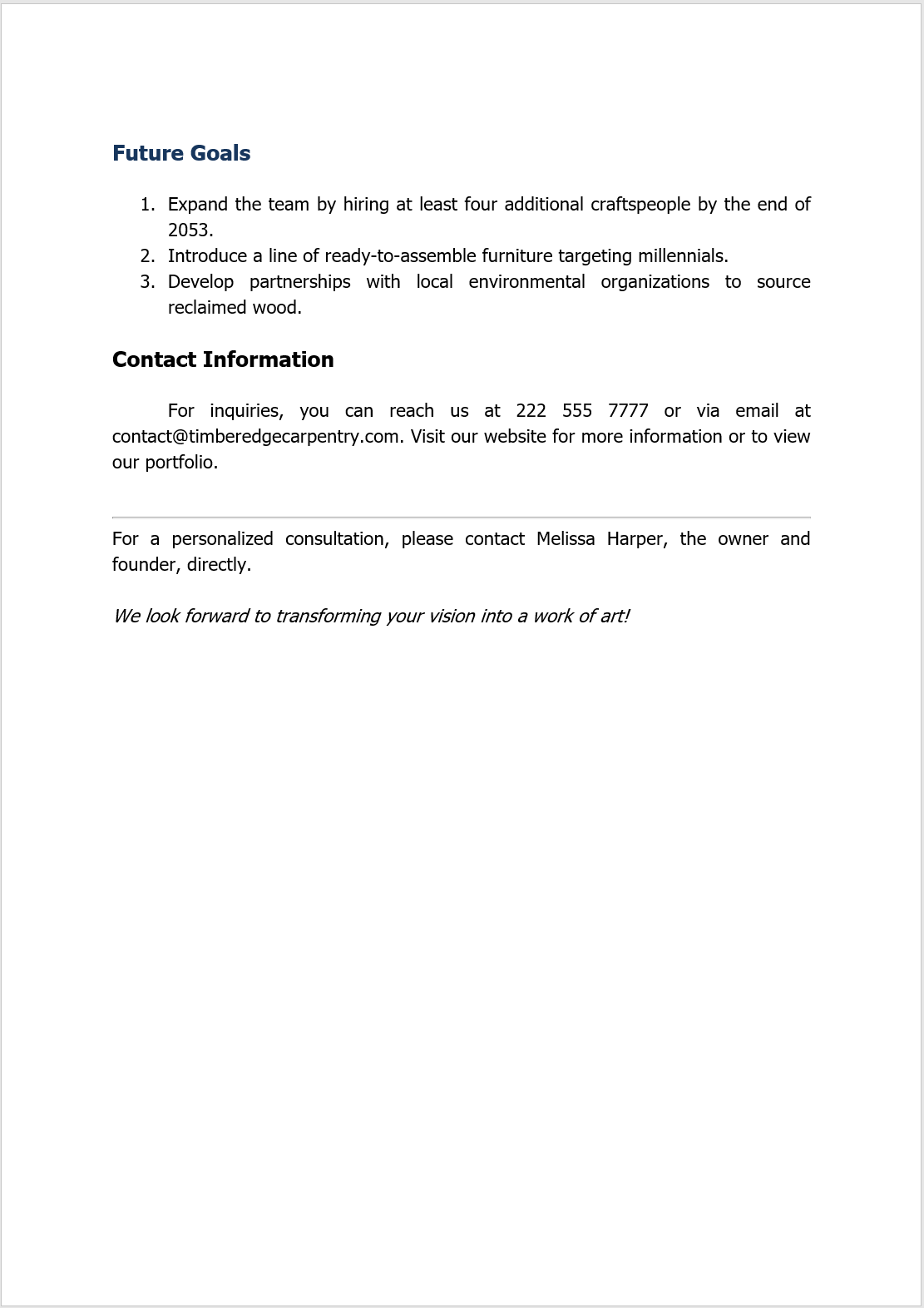A company profile is a professional introduction to your business that aims to inform potential customers, stakeholders, and investors about your products, services, and operational status. In essence, it’s a vital component of your business plan, providing a comprehensive and persuasive overview of your company.
Crafting an effective company profile not only boosts your visibility but also enhances your credibility in the market, paving the way for business opportunities and partnerships.
Importance of a Company Profile for a Business Plan

A well-written company profile is crucial for several reasons:
- First Impressions Matter: It often serves as the first point of contact with potential clients and investors. A compelling profile can make a lasting impression, setting the tone for all future interactions.
- Brand Image: It helps in building a strong brand image by clearly communicating who you are, what you stand for, and what you aim to achieve.
- Informative Resource: For stakeholders looking to understand your business without direct interaction, your company profile offers a concise, informative snapshot.
- Support for Funding: When approaching financial institutions or investors, a company profile supports your business plan by succinctly presenting the necessary company details and growth potential.
- Competitive Edge: In a crowded market, a professional business profile can distinguish your business from competitors, highlighting your strengths and specialties.
10 Major Components of a Company Profile

- Company Name and Logo: Start with the basics; your company name and logo are central to your brand identity.
- Contact Information: Include all relevant contact details (address, phone number, email) to facilitate easy communication.
- Company Overview: Briefly describe the history, foundation, and evolution of your company.
- Mission and Vision Statements: Clearly state your company’s goals and aspirations, and how you plan to achieve them.
- Products or Services: Provide a detailed list of your offerings and explain how they stand out in the market.
- Market and Industry: Discuss your target market and industry, including market trends, demographic information, and competitive analysis.
- Management and Employees: Highlight the expertise and qualifications of key team members, underscoring their role in driving the company’s success.
- Milestones and Achievements: Mention significant milestones like patents, awards, or important projects that showcase your company’s credibility.
- Corporate Social Responsibility (CSR) Initiatives: If applicable, describe your CSR efforts and how they align with your company’s values.
- Financial Information: For established businesses, including key financial metrics can be advantageous, particularly when seeking investment.
Suggestions for Making Your Business Profile More Professional

- Keep it Updated: Regularly review and update your profile to reflect the most current information about your company.
- Professional Tone: Use a professional, clear, and concise language.
- Quality Visuals: Incorporate high-quality images and graphics that align with your branding.
- Third-Party Endorsements: Include testimonials or quotes from clients, partners, or industry experts to build trust.
- Customize for Audience: Tailor the profile based on who will be reading it (investors, clients, general public).
Key Elements and Tips for Creating the Best Company Profile
- Consistency in Branding: Ensure that your company document aligns with your other branding materials in terms of color schemes, fonts, and overall tone.
- Clear and Compelling Narrative: Construct a narrative that engages readers, effectively conveying your company’s story.
- Highlight Unique Selling Points (USPs): Clearly delineate what sets your company apart from the competition.
- Include Call to Action (CTA): Encourage readers to contact you or visit your website for more information.
- Proofread: Errors in your company profile can detract from its professionalism. Proofread thoroughly to ensure accuracy and clarity.
At last,
Creating an effective business profile is not just about listing facts about your business. It’s about crafting a compelling story that highlights your strengths and aligns with your business strategy. It should resonate with your target audience, be it clients, investors, or potential employees, and prompt them to engage with your business.

